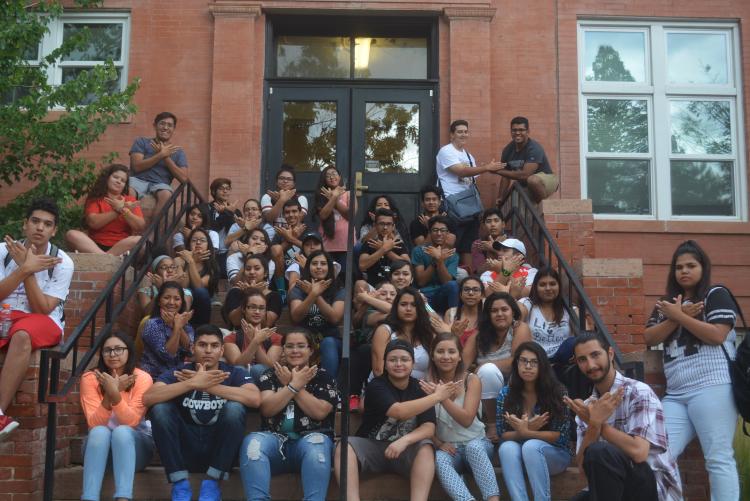
This summer, around 30 high school students from across the state immersed themselves in Aquetza, a youth leadership, education, and community empowerment summer program at CU Boulder. But their work is far from complete, as the students return to their high schools and home communities — Aurora, Boulder, Colorado Springs, Denver, Lafayette, Longmont, Pueblo and more — to spur postive change.
According to Jasón Romero, co-director of the Aquetza and a recent School of Education graduate, this year’s cohort was especially successful and their desire to affect positive change and share their experiences was at an “all-time high.”
“Students from this year are exhibiting an intense desire to continue the experience of Aquetza in their schools and communities.” he said. "They are already putting together plans to create new student organizations, reform existing ones, and, most meaningfully to me, advocate for the creation of Ethnic Studies courses in their high schools. I am excited to see the routes they take with all of their different projects.”
Aquetza was co-founded by Romero (MA ’16) and fellow alum Mike Domínguez (PhD ’15), who intended to revive a summer bridge program that CU’s United Mexican-American Students Association led in the 1970s to bring Latin@ and Chican@ youth to campus. The program's modern form centers on a free, week-long residential program that provides high school students with interactive academic and community-building experiences
Now in its fourth year, Aquetza aims to “empower youth with strong ties to Latin@ and Chican@ communities to develop powerful connections between academics and community development, begin to include a trajectory of higher education in their life plans, and see themselves as scholars and civic leaders.”
Aquetza, which roughly translates as “lift your chin up” in the indigenous language, Nahuatl, focuses on examining the history, literature, and relevant social and political issues surrounding the students’ cultural communities. Through rigorous academic work and individual and group reflection on personal experiences, the students develop projects that they take home and implement long after the enriching and emotional week is over.
The program is student led, with Romero and undergraduate Magnolia Landa-Posas serving as 2016 co-directors and support from several CU students as instructors. Enrique López, assistant professor of science education, is the program’s faculty advisor. His research follows the student after their Aquetza experience, when they return home to implement their projects. López witnessed the program in action for the first time last year. He said he has has never seen a program quite like it.
“It was amazing what I was seeing,” López said. “I was so impressed with the students. The students run Aquetza, but I help evaluate the program and it informs my research.”
Aquetza is supported by CU Boulder’s School of Education, the Office of Diversity, Equity, and Community Engagement, the Cultural Unity & Engagement Center, the BUENO Center for Multicultural Education, which is housed in the School of Education, and private donations.
Photo by Manni Melgoza-Alfaro
Related Faculty: Enrique López
